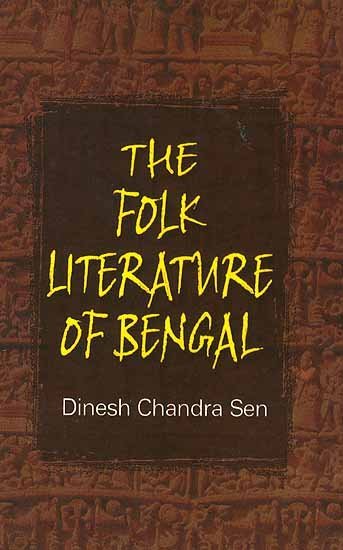Folk Tradition of Bengal (and Rabindranath Tagore)
by Joydeep Mukherjee | 2018 | 49,317 words | ISBN-10: 8186036989 | ISBN-13: 9788186036983
An English study regarding the Folk Tradition of Bengal and its influence on Rabindranath Tagore—an important Bengali polymath from the 19th century who excelled in philosophy, arts (painting), literature and music. This research tries to initiate the semantic aspect of “folk” through the help of various dictionaries....
Chapter 2.8 - The British Culture in Bengal and Tagore in its Continuation
[Full title: Review of Research—Bilati Sanskriti and Rabindranath (The British Culture in Bengal and Tagore in its Continuation)]
After the battle of Palassey in 1759 Englishmen got settled in India. In other words they became the kings of the country. It drastically changed the set of Kolkata and its culture. Along with this they started staging several cultural items. Undoubtedly there is an indelible impact of western culture in Bengal so much so that with the help of Englishmen they even showed the confidence to stage the dramas of Shakespeare namely the popular tragedies–Hamlet, King Lear, Othello, Richard III etc. Before that there was no place for women in the theatre. Men used to play the role of women in disguise rather with makeup. In 1783 women got the sanction to perform upon the stage. In this way the research traces the gradual change of culture in Bengal.
The research shows how Tagore involved himself in such revolutionary cultural transformation. In the first half of 19th century there was a deep impact of European theatre culture in the so called rich family of the then Calcutta. Thakur bari (Tagore family) is one of them. The researcher informs that the Thakur family in Pathurighata created a theatre group and they named it as “Hindu Theatre”. They used to teach to play the role of English dramas. Tagore was one of the members of the team though not very affectively.
The research also quotes his conception about one of the performances in that theatre group. He says:
Vidysundar in Bengali, after the English fashion, it commenced with music of orchestra which was very pleasing. The native musical instruments, such as Sitar, the Sarangi, the Pakhwaj and others, were played by Hindus, almost all Brahmin, among them the Violin was managed by Brojonath Goswami.
The most important point of the research is that it shows the influence of such western culture on him. Though very cynical he was in the beginning of his career, he did not discard the elements of their culture rather wrote an essay “Our Culture and Their Culture” only to make a balance between the two. He composed so many songs according to their pattern. He also wrote a Geeti natya during that time. Vital it is that the research very meticulously describes the history first and then shows the impact on Rabindranath Tagore.
